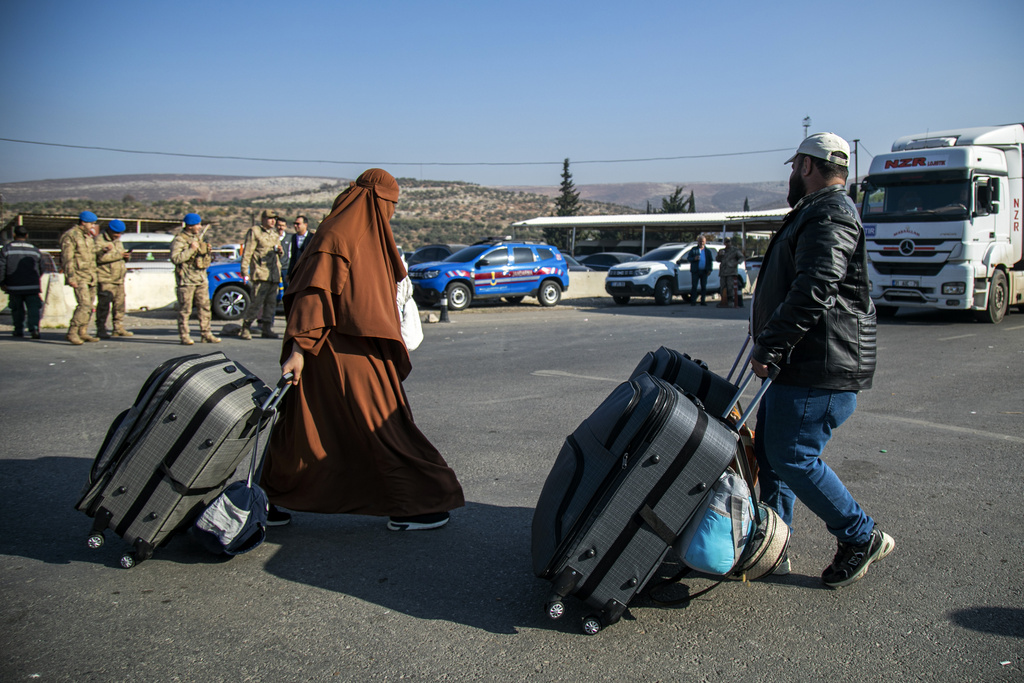The fall of Syrian dictator Bashar al-Assad has sparked calls for Syrian refugees in Europe to return to their homeland.
With Damascus now declared liberated by a group of rebels on state television, European leaders and Syrian opposition groups alike are urging refugees to consider repatriation, as the reasons for their initial flight no longer apply.
The overthrow of Assad has brought wild celebrations in Syria among exiled Syrians, with thousands taking to the streets of European cities this weekend to rejoice over the end of his 24-year-long regime.
Crowds have already begun forming at the Masnaa border crossing in Lebanon, with refugees waving green opposition flags and singing in celebration. Similarly, vast queues were seen at the Turkish border.
Syrians returning home from Turkey. pic.twitter.com/TywIQlIBXu
— Leila Al-Shami (@LeilaShami) December 8, 2024Images circulating on social media show freed prisoners emerging from the notorious Saydnaya military prison, many of whom had been detained for decades.
اللحظات الأولى لخروج المعتقلين من سجن صيدنايا#تلفزيون_سوريا #نيو_ميديا_سوريا #فجر_الحرية #ردع_العدوان #سوريا #حلب #حماة #دمشق #سقوط_الاسد pic.twitter.com/YIT3m5HZkc
— تلفزيون سوريا (@syr_television) December 8, 2024German officials are now debating the implications for Syrian refugees, many of whom are under “subsidiary protection” due to the ongoing civil war.
Professor Volker Boehme-Neßler, a constitutional law expert, told Bild that the regime’s collapse could mean a shift in their legal status. “If the reasons for flight disappear, even recognized asylum seekers have to travel,” he explained.
Hesse’s Interior Minister Roman Poseck (CDU) emphasized Germany’s interest in the return of Syrian refugees.
“We are very interested in getting refugees from Syria returned to their homeland, voluntarily or as part of deportations. There should be no compromises with criminals. Our safety must be a priority here,” he told the German tabloid.
Despite the optimism, experts warn of potential instability in Syria. Islamologist Susanne Schröter cautioned that the rebels, predominantly Islamist factions, are unlikely to establish a government meeting Western democratic standards. However, such a state could align with the values of many of those who fled the previous regime in the first place.
“The rebels are mainly Islamists. I think it is unlikely that a democratic state in the Western sense will emerge under their influence,” she said. “However, this is not necessarily an obstacle to the possible repatriation of refugees from Germany because many of these refugees themselves adhere to fundamentalist Islam.”
The reverse, however, could still happen, with some warning of a potential exodus of those fleeing as a result of the deposition of Assad.
“If this is the harbinger of another period of greater chaos in Syria, then there is still a large number of people in the country who have not left, many of whom may feel unsafe and may try to leave the country,” warned Rob McNeil, deputy director of the Migration Observatory at Oxford University.






